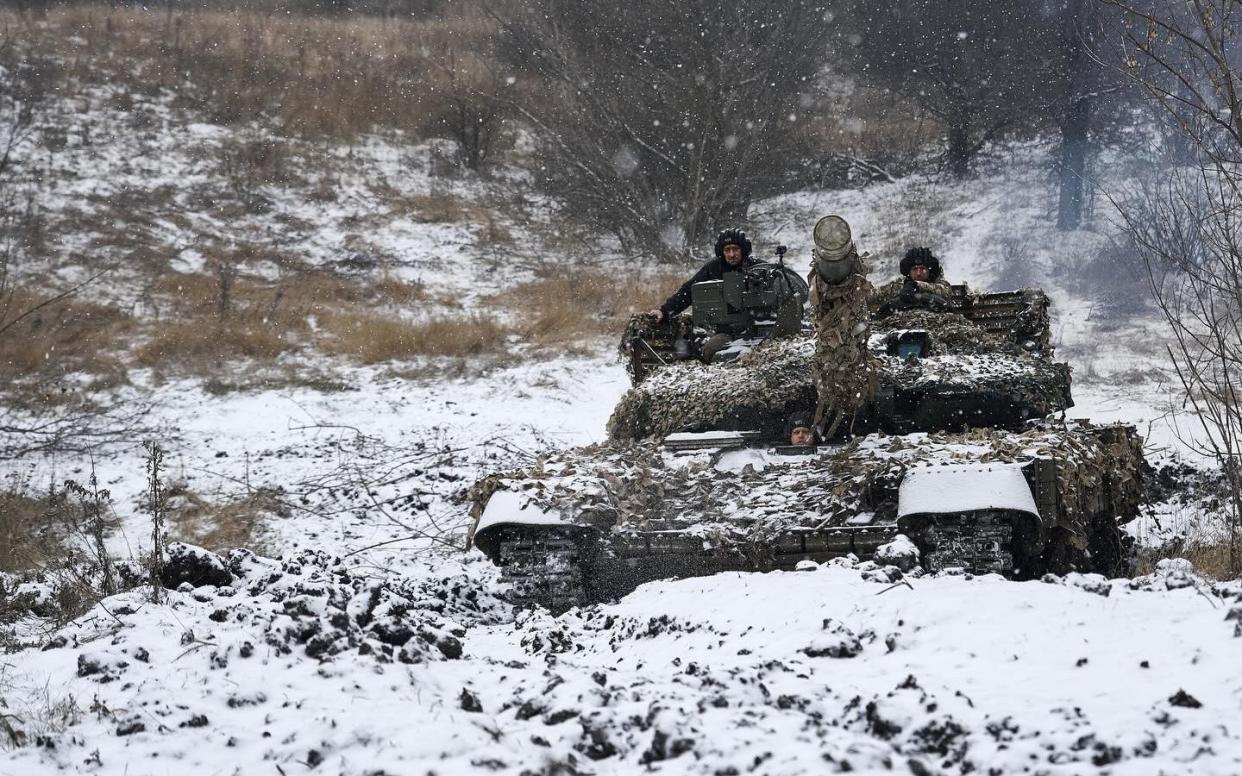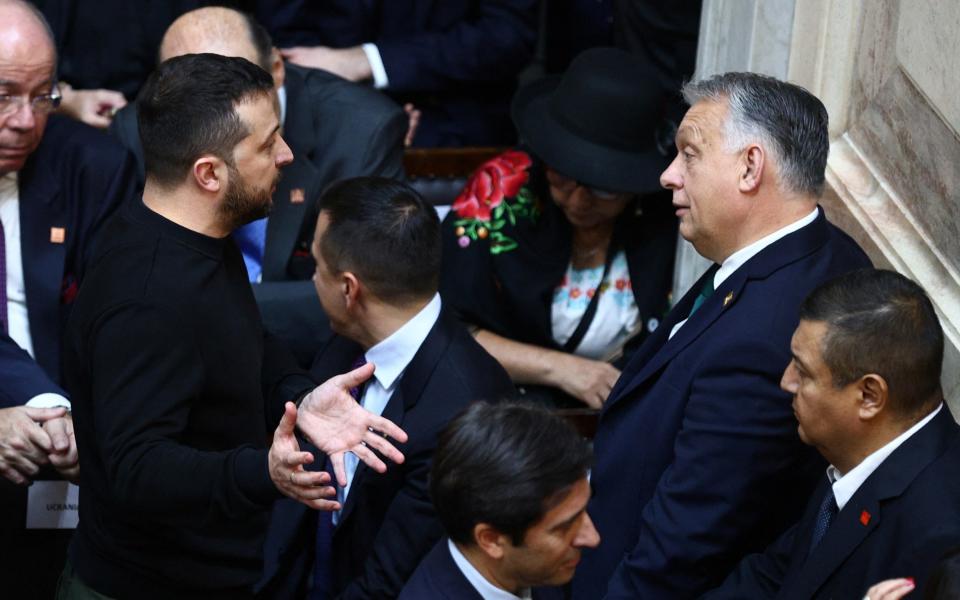EU exploring ‘Plan B’ Ukraine funding as Hungary threatens to veto €50bn aid package

- Oops!Something went wrong.Please try again later.
European leaders are drawing up a “plan B” to provide Ukraine with emergency funds as Hungary appears set to block a €50 billion lifeline to Kyiv.
Viktor Orban, the Hungarian prime minister, has threatened to veto the European Union’s attempt to provide the much-needed finances as well as formal negotiations on the war-torn country joining the bloc at a summit later this week.
Ukraine has warned it will be on the “edge of survival” without the money as weapons supplies slow down amid faltering Western support and the war in Gaza.
Senior EU figures, including France’s Emmanuel Macron, and Ukrainian president Volodymyr Zelensky have lobbied hard for Budapest to overturn its opposition to both proposals.
But with time running out ahead of the crunch meeting in Brussels on Thursday and Friday, national capitals have turned to private talks over an inter-governmental deal that could provide Kyiv with finances for at least a year.
“Where there is a will, there’s a way,” a senior EU official said. “If we’re talking money, you can think of the budget as the EU’s own resource but you also have national contributions.”
“I’m not sure everyone will agree, but we need to look into the possibilities.”
An intergovernmental agreement between willing member states would provide Ukraine with a series of loans and grants to keep its economy afloat.
But it would likely get bogged down in legal complexities and fail to provide Kyiv with the full €50 billion of support envisaged.
‘Reckless not to have a plan B’
The EU’s largest economies, Germany, France and Italy, would have to shoulder most of the burden of the cost of the project.
“Nobody wants to do this if we don’t have to… But it would be reckless not to have a plan B,” one source briefed on the discussions told the Financial Times.

Olha Stefanishyna, Ukraine’s deputy prime minister, told reporters that her government had no assurances that the €50 billion would be provided by the bloc, in one form or another.
However, she confirmed there could be an “interim solution”, but said details would remain confidential as EU member states work to try and convince Mr Orban not to use Hungary’s veto.
Without the funds, and amid uncertainty over the fate of a similar-sized funding package in the US, Ms Stefanishyna said Kyiv would be at the “edge of survival and have zero predictability for the whole of next year”.
European Commission set to approve €10bn
In a bid to overcome Hungary’s opposition to further support for Ukraine, the European Commission is preparing to approve more than €10 billion in funds it had withheld from Budapest amid concerns over the country’s democratic backsliding.
But the move prompted anger among some quarters in the European Parliament.
Stéphane Séjourné, the French president of the liberal Renew Group, warned it was “against the release of any European funds for Hungary”.
“We have no guarantee that there will be a return to sustainable democracy in Hungary. The future of the European Union, Ukraine and Moldova cannot be held hostage by one man,” he said.
While the funding is considered to be a hurdle possible to overcome, progression on Ukraine’s EU membership bid looks less likely.
‘A third of EU members have serious reservations’
The start of formal ascension talks requires unanimous approval from the bloc’s 27 member states. Hungary insists it is not alone in its opposition to Kyiv joining the bloc’s ranks.
Janos Boka, the country’s Europe minister, told the Financial Times that a third of EU member states “harbour very serious reservations” about Ukraine’s membership ambitions.
New polling by the European Council on Foreign Relations (ECFR), a Berlin-based think-tank, found that public opposition to Ukraine joining the EU was stronger than support for it becoming a member in Germany, France and Austria.
A majority of Austrians, 52 per cent, were opposed to the move, while only one in four French supported Ukraine joining the bloc.
In Germany, there was a split opinion, with 39 per cent of Germans opposed compared with 37 per cent in support.
“Geopolitical rhetoric from Brussels is masking deep concerns in member states about the potential consequences of enlargement and widespread scepticism about the EU’s ability to absorb new members,” said Piotr Buras, a senior policy fellow and the head of the ECFR’s Warsaw office.
“To reconcile possible schisms, and give their efforts some chance of success, EU leaders should consider establishing a concrete timeline for the accession of new member states,” he added.
“This would provide space for the bloc to complete institutional reforms, build up resilience, and engage the public on why this strategy is imperative for Europe.”

